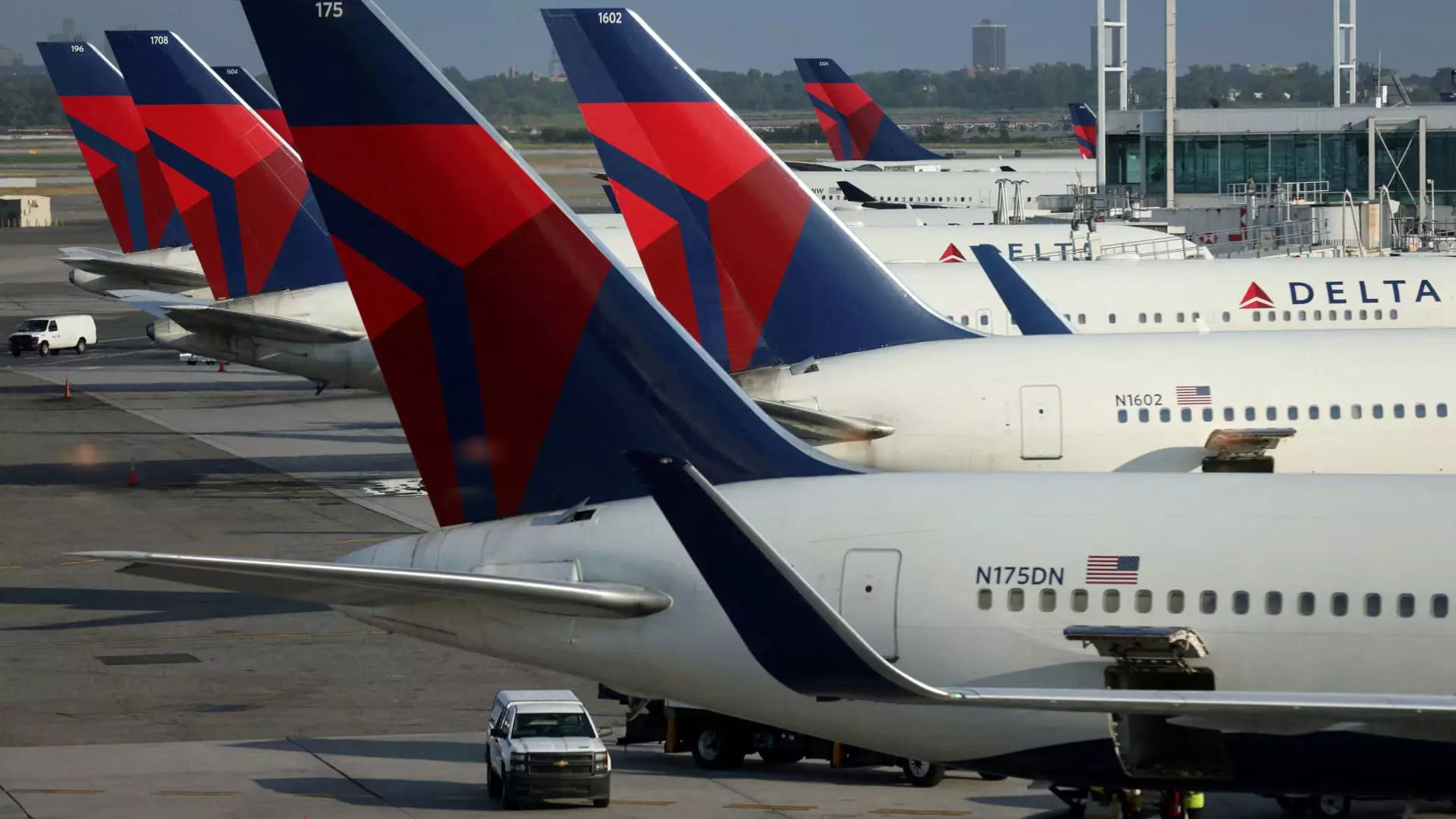In an unprecedented move, Delta Air Lines has initiated legal action against cybersecurity firm CrowdStrike, citing severe negligence and breach of contract. The lawsuit follows a catastrophic software outage in July that disrupted Delta’s operations drastically, leading to the cancellation of 7,000 flights and a staggering loss of up to $380 million in revenue. Unlike other airlines that successfully navigated the crisis, Delta was unable to recover in a timely manner, exacerbating the financial fallout.
The core issue stems from a flawed software update impacting Microsoft’s Windows operating system, which, according to Delta’s legal filing, created untold chaos within the airline’s systems. These events raise grave concerns about the reliability and safety of software that is integral to the operations of major corporations. Delta’s repercussions highlight the ripple effect that a single software failure can unleash, affecting not just revenue but also customer trust and brand integrity.
Delta’s suit characterizes the incident as a “global catastrophe,” firmly placing blame on CrowdStrike for allegedly bypassing crucial testing protocols that are vital for maintaining operational integrity. The complaint states that if proper testing had been performed, the faulty update would have been detected before deployment. Delta argues that they had disabled automatic updates, suggesting negligence on CrowdStrike’s part for allowing the flawed update to infiltrate their systems. The implications of these assertions are profound and prompt questions about how software providers manage accountability and testing to prevent operational disruptions.
The airline is not only seeking reimbursement for direct financial losses but also punitive damages, illuminating the serious legal stakes at play. Delta’s CEO, Ed Bastian, stated emphatically that the chaos wrought by this incident necessitates full recompense—a position that underscores the high expectations companies have when employing third-party software solutions.
In light of the allegations, CrowdStrike admitted to the incident and its subsequent ramifications, with CEO George Kurtz publicly apologizing and pledging to reevaluate their operational practices. This acknowledgment is a significant step, yet it raises questions about the preparedness of cybersecurity firms in the face of critical failures. The mere fact that CrowdStrike re-evaluated its full-year guidance due to customer commitments arising from the outage indicates acknowledgment of the extensive fallout but also reflects how interconnected corporate relationships can intensify the consequences of mismanaged software deployments.
The larger conversation extends beyond just Delta and CrowdStrike—it touches on industry-wide practices regarding software reliability and protocols for deployment. Given the escalating digital threats and reliance on technology across sectors, companies have a growing responsibility to ensure robust testing and transparent communication about software vulnerabilities.
Ultimately, Delta’s legal maneuver is more than just an isolated case; it serves as a clarion call for the tech and aviation industries to prioritize diligence and accountability within software management. In an increasingly digitized world, the chain of trust between software vendors and their clients becomes critical, as does the necessity for rigorous testing—both to safeguard operations and to protect against far-reaching business impacts in the event of a failure. As this case unfolds, it will undoubtedly shape how corporations approach partnerships with technology providers, seeking to avert catastrophes that stem from simple oversights or flawed systems.


Leave a Reply